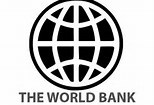1. Despite massive economic and human potential, Iraq has suffered from decades of conflict and
economic volatility. The government of Iraq (GoI) faces the dual challenge of stabilizing and growing the
economy while also ensuring security, jobs, and basic services to Iraqis across the country. A resource‐rich,
middle‐income country, Iraq has experienced internal and regional struggles seeking to align political institutions
with diverse and cross‐cutting socioeconomic, ethnic, and religious identities. As highlighted in the Iraq
Systematic Country Diagnostic (SCD) report of 2017, the combination of oil wealth and the mismanagement of
political and social diversity has led to acute fragility and conflict, exacerbated by long‐standing governance
problems and the challenge of ensuring a more equitable allocation of national resources.
2. Economic growth has decelerated sharply over the past few years. The war against the Islamic State of
Iraq and Syria (ISIS) and a protracted reduction in oil prices have resulted in 21.6 percent reduction of the non‐
oil economy since 2014. Iraq’s high dependence on oil implies that overall growth is estimated to have contracted
by 0.8 percent in 2017, due to a 3.5 percent reduction in oil production, following an agreement by Organization
of Oil Exporting Countries (OPEC) and non‐OPEC oil producers to cut oil production by the end of 2018. The 2018
national poverty rate is estimated at 20.0 percent and includes 2.8 million people who fell into poverty as a
direct result of the war against ISIS.
To read full text of the report please click on the following link:
Iraq-Electricity-Services-Reconstruction-and-Enhancement-Project
Source: Worldbank








Comment here